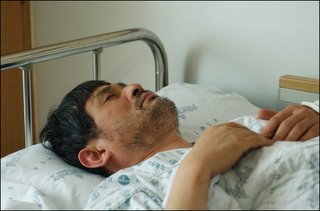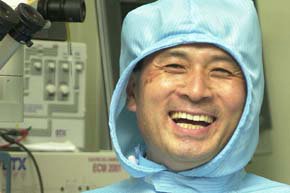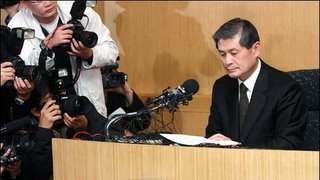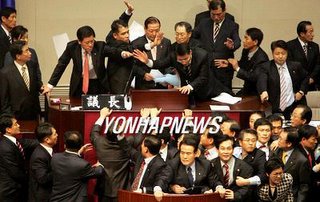BioOrgan Center

Bio-Organ Center Named After Hwang
By Kim Tae-gyu
Staff Reporter
http://times.hankooki.com/lpage/tech/200512/kt2005120817193711780.htm
Support from across the nation is converging on Korea’s cloning king Hwang Woo-suk, who is now bed-ridden after being stressed out due to disputes on his milestone stem cell breakthroughs.
The government Thursday broke ground on the construction of a bio-organ research center named after Hwang in Suwon, Kyonggi Province, to use pigs for organ transplants. To complete the advanced facility next December, the Ministry of Science and Technology plans to invest 29.5 billion won in a 5,000-pyong (16,500 square meters) area together with Kyonggi Province. The Ministry said the center would be outfitted with state-of-the-art operating rooms, research labs and other facilities to accommodate hundreds of sterilized pigs. Hwang could not take part in the ceremony, but most of his colleagues such as professors Lee Byeong-chun and Ahn Cu-rie at Seoul National University (SNU) were present.
In addition to his attention-grabbing medical exploits on embryonic human stem cells, Hwang also delved into pigs as source to grow organs for use by humans. To conduct the inter-species organ transplants without causing rejection, Hwang’s team already got dozens of pig clones genetically engineered to have human immune genes. Hwang’s team plans to transplant the organs of cloned pigs to monkeys, a necessary process before going to humans.
``We are muddling through many difficulties. With the construction of this center, we will be able to speed up our animal tests,’’ SNU Prof. Lee Jeong-ryul said.
Dignitaries such as Science-Technology Minister Oh Myung also expressed his support for Hwang by visiting the ailing embryologist, who was admitted to the SNU Hospital early Wednesday. After meeting with Hwang, Oh told reporters that he seemed to have lost his desire to continue cloning research and quoted Hwang as saying that he wanted to forget about the work.
The World Stem Cell Hub, which began operations last month to provide stem cells to global biologists, also said it would not accept Hwang’s resignation from chairmanship of the agency. The agency situated inside the SNU Hospital said it would keep its top job vacant until Hwang got back to his jobs and retake it. By contrast, some young SNU professors urged the university to start in-house verification on the genuineness of Hwang’s patient-specific stem cell batches. They said the university is required to check the authenticity of research conducted by its professors.
Hwang left his lab at the university on Nov. 24 after admitting the misconduct of recruiting eggs from his junior staffers for research and also has been plagued by the claim that his patient-specific stem cells might not be real.






